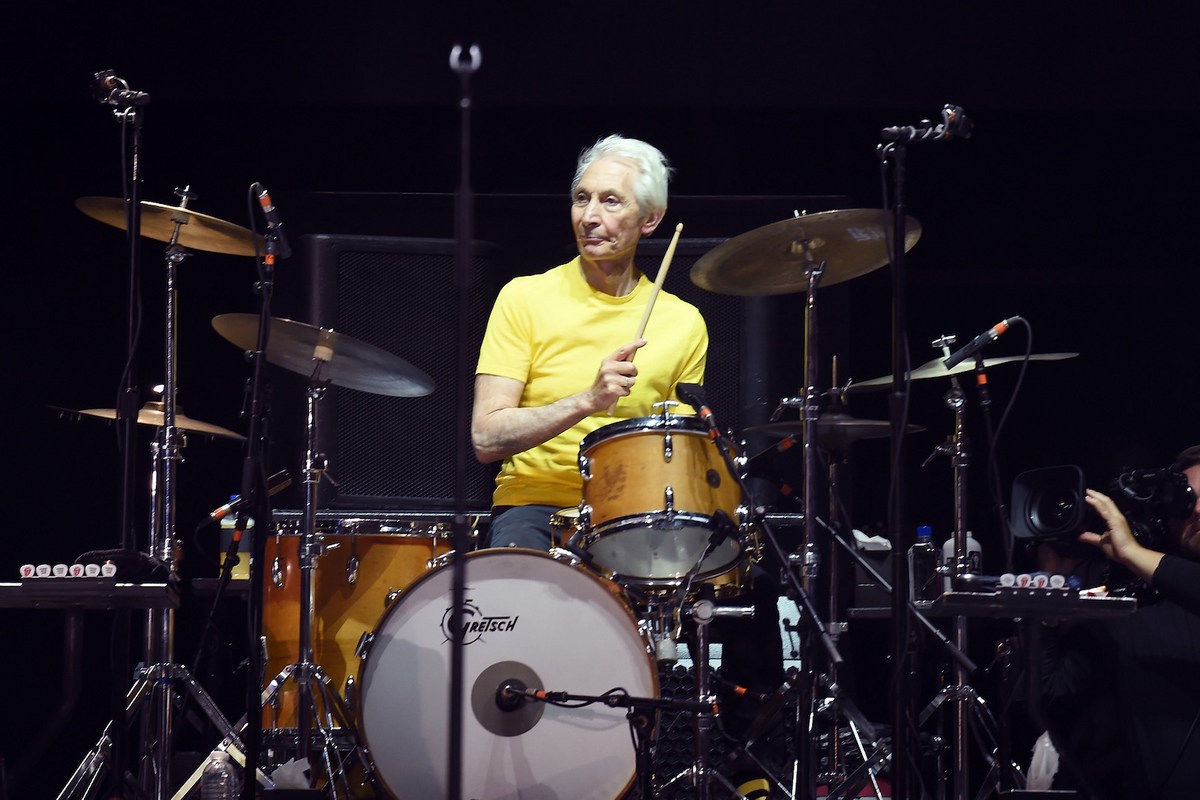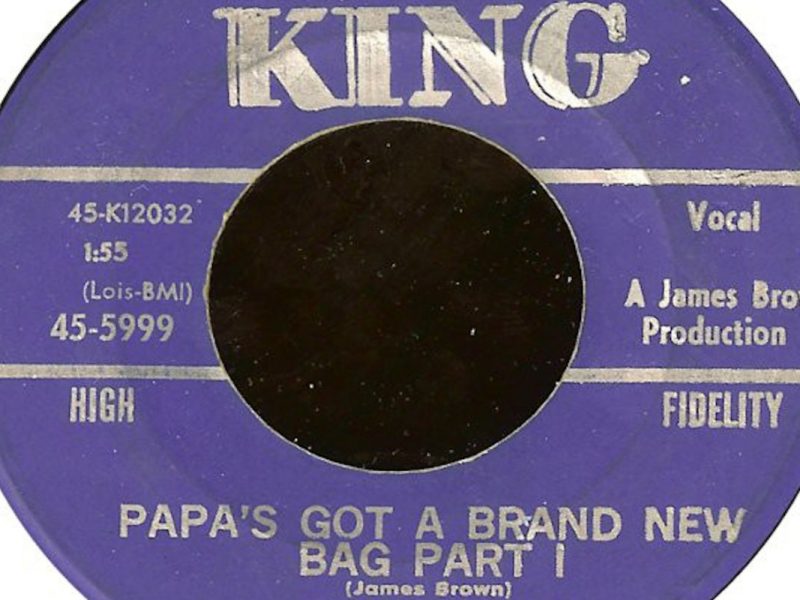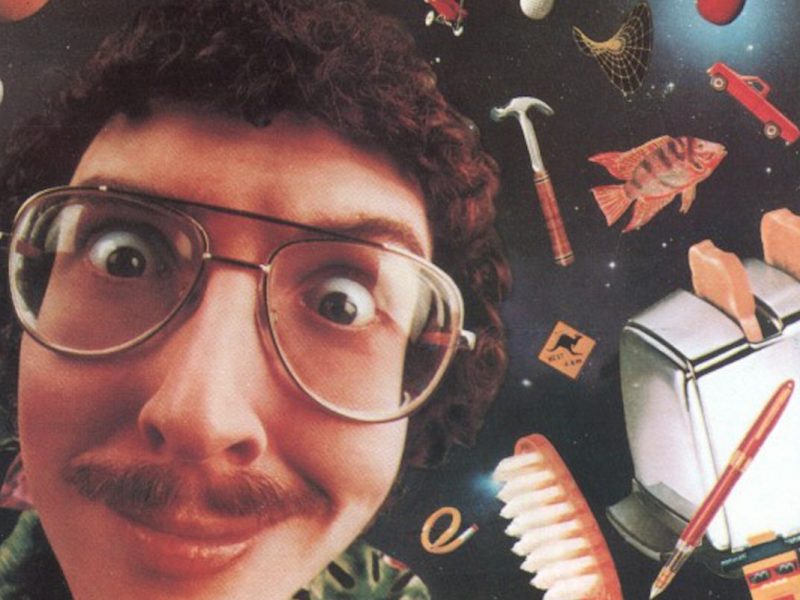In early August 2021, it was announced that drummer Charlie Watts, for the first time, would not be participating in the Rolling Stones’ upcoming tour.
“For once my timing has been a little off,” Watts said in a statement at the time. “I am working hard to get fully fit but I have today accepted on the advice of the experts that this will take a while. After all the fans’ suffering caused by COVID, I really do not want the many fans who have been holding tickets for this tour to be disappointed by another postponement or cancelation. I have therefore asked my great friend Steve Jordan to stand in for me.”
It was assumed that Watts would return as soon as he recovered from what a spokesperson described as a “completely successful” procedure, though exact details were never disclosed. Watts had beaten throat cancer in 2004 and had not revealed any other potential medical obstacles since then. On Aug. 24, 2021, news broke that Watts had died “peacefully” in a London hospital surrounded by his family.
An outpouring of condolences followed. “God bless Charlie Watts,” Ringo Starr wrote on Twitter, “we’re going to miss you, man.” Many who posted remarks noted Watts’ distinct style of drumming, one that helped propel the Rolling Stones to their worldwide success. “Charlie’s drumming is powerful and unique,” Robbie Robertson said. “His approach is entirely his own and helped shape the sound of rock ‘n’ roll.”
Guitarist Ronnie Wood recalled his final visit with Watts: “We watched horse racing on TV and just shot the breeze,” he said. “I could tell he was pretty tired and fed up with the whole deal. He said, ‘I was really hoping to be out of here by now.’ Then after that, there was a complication or two and I wasn’t allowed back. No one was.” Watts’ last show with the Stones occurred almost exactly a year earlier on Aug. 30, 2019, at the Hard Rock Stadium in Miami Gardens, Fla. It was part of the band’s No Filter Tour, which had launched in 2017 and was scheduled to finish in 2020. Then the pandemic put a halt to live touring.
Watch Charlie Watts Perform With the Rolling Stones for the Last Time on Aug. 30, 2019
One of the first questions that surfaced after Watts’ death was whether or not the Stones would move forward with their rescheduled 2021 tour dates, which were set to begin in September. It was eventually confirmed that the tour would continue as planned with Jordan playing drums.
Just before the tour picked back up, the Stones performed at a private event hosted by New England Patriots owner Robert Kraft at Gillette Stadium in Massachusetts. “We all miss Charlie so much,” Mick Jagger said at the show. “We miss him as a band, we miss him as friends, on and off the stage.”
A day later, the Stones officially kicked off their first leg of touring at the Dome at America’s Center in St. Louis. This was the first time the band embarked on a tour without Watts in 59 years, but his presence was still palpable in the photos and videos of the late drummer displayed on screens.
Watch Mick Jagger’s Tribute Speech to Charlie Watts at First Show Back on 2021 No Filter Tour
Jordan was no stranger to working with the Rolling Stones — he’d been playing with them and with Keith Richards’ solo group, the X-Pensive Winos, for decades. Richards later confessed he was hesitant to even attempt touring without Watts, but it was Watts who encouraged him. “Charlie said to me, ‘You can do it with Steve. He can take my seat anytime,'” Richards recalled. “And he talked me into it.”
Despite the endorsement and a laundry list of credentials, Jordan admitted midtour that it was still a tough position to be in. “There are people that don’t understand that I lost a friend,” Jordan said in October 2021. “So they’re happy for me, but they don’t understand that I’d rather not have this be the case. But the Rolling Stones have really, really done everything in their power to make the transition smooth and sympathetic and empathetic. They’ve been cognizant of everyone’s feelings. I personally appreciate that.”
Just a few days before Watts’ death, a 40th-anniversary box set edition of the Stones’ 1981 album, Tattoo You, was released. The reissue included nine songs the band had recently returned to the studio to finish, unaware it would be the last time they’d be there with Watts.
“I did some stuff with him in the studio very recently, while we were doing the Tattoo You things,” Jagger said in a September 2021 interview. “Charlie did some work on just a few fills and stuff like that. And then we started messing around, we did some other things.”
A year after Watts’ death, the four-part docuseries My Life as a Rolling Stone arrived on Epix, with each episode focusing on a different band member. Work on the series had just started when Watts died. Like the Stones’ tour, it felt right to finish what they started.
“In a strange way, it made [the band] think we should be doing this because we want to show their appreciation of him,” executive producer Steve Condie told UCR. The fourth and final episode of the series, all about Watts, featured his bandmates and other musicians reminiscing about old times and acknowledging his talent. “They wanted a program that would be devoted to him, in which they themselves – Ronnie, Keith and Mick – could say what they felt about Charlie, but also be an opportunity for a broader audience to understand this extraordinary guy. It was a difficult period for them, obviously. It threw things into a little bit of doubt, but in the end, I think we all came around to the feeling that, actually, you know what? We’ve got to do this.”
For the remaining Stones, adjusting to life without Watts behind the kit didn’t happen overnight. “[It] is strange to turn suddenly and, you know, after all these years, you expect that face there!” Richards told CBS in March 2022.
Even though Jordan has lived up to the band’s expectations, Watts remains irreplaceable to them. “It seems like only yesterday that I was in the studio with Charlie, joshing around,” Jagger said in 2021.
“It’s just so weird and then very sad. And I mean, it’s such a long time that you work with someone like that, and you get to know someone so well and their quirks and their idiosyncrasies and they know yours. And there’s a language in communication with musicians, obviously, or anything else. … That’s very rare. I miss that so much.”
On the first anniversary of Watts’ death, Jagger posted a montage of photos of himself and Watts through the years as the Stones’ 1974 song “Till the Next Goodbye” played. “He had a great sense of humor,” Jagger said in the clip. “Outside of the band we used to hang out quite a lot and have interesting times going. We liked sports, we’d go to football, we’d go to cricket games. We would have other interests apart from just music.”
Wood also posted a series of photos marking the anniversary, mentioning Watts’ widow, daughter and granddaughter: “Charlie, missing you every single day. Shirley, Seraphina and Charlotte, we hold you close in our hearts.”
Watts was known as the quiet one in the band, content to stay in his hotel room or visit a local jazz club while on tour. “I’m very private,” he said in a 2012 interview with Classic Rock. “I’m not really that interested in talking about me.” For Watts, musicianship came first. Everything else – the fame, money, legacy — was incidental. Or, at times, a burden.
He held a special standing among fellow drummers, too. His style of playing, highly influenced by jazz, was deceptively simple: powerful without being overbearing, complex without being frilly. As evidenced by the tributes that poured in following his death, Watts’ subtle yet profound impact on popular music won’t soon be forgotten. “Maybe it’s just an inferiority complex I’ve got,” Watts said in the 1966 film Charlie Is My Darling. “Or maybe I am great after all.”
The Rolling Stones’ Charlie Watts Year by Year: Photos 1962-2020
We collected dozens of pictures of the drummer below for Charlie Watts Year by Year: Photos 1963-2020.



